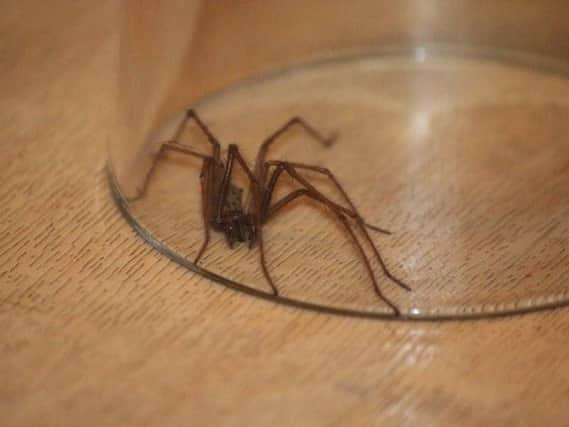Spiders out looking for love


But before you reach for the hoover or rolled-up newspaper to dispense a portion of final judgement, Lancashire residents have been urged to think twice.
Our arachnid friends are on the lookout for love throughout Autumn and although no-one wants their house to be over-run, common spiders do serve a purpose, says Lancashire Wildlife Trust’s Alan Wright.
Advertisement
Hide AdAdvertisement
Hide AdHe said: “The spiders you are seeing now will be males which have become sexually mature and are looking for females to mate with.
Yes your home has become a big orgy with spiders coming out of the safety of their nooks hunting for nookie.
“This is all the more reason why you shouldn’t kill them. Imagine killing something that is just looking for love!”
Many of them, explains Alan, are not coming in from the cold, but are instead revealing their hiding places within the home.
Advertisement
Hide AdAdvertisement
Hide AdHe said: “The spiders you see at the moment are ones that have been in your house all year round.
“Only one in 20 spiders will have come in from the outdoors, the majority will have been hidden in gaps and spaces where their webs have been catching flies and other insects.”
And they can serve a purpose, if you are among the section of the population who don’t mind them being around.
Alan added: “Of course spiders in your home serve a fantastic purpose, they kill flies and other bugs.
Advertisement
Hide AdAdvertisement
Hide Ad“And the fact that you haven’t even been aware that you have been sharing your home with a spider means that keeping your own pest removal service in your home is a great idea.”
If you are not a lover of spiders then at least you can enjoy the sight of their webs on a crisp Autumnal morning. Alan said: “If you are out and about in fields look out for spectacular webs on plants too. They look great covered in dew.”
Elsewhere in the animal world, the breeding habits of many winged creatures and insects are disrupted by prolonged damp spells, according to the National Trust.
Matthew Oates, wildlife expert, said: “After a highly promising spring and early summer, the rains came down. This was especially damaging for warmth-loving insects, including butterflies and bees.”
Related article: